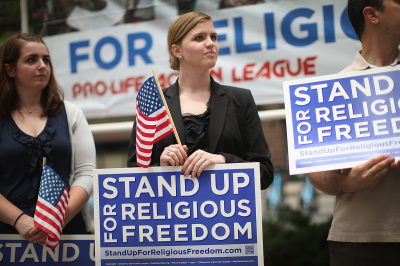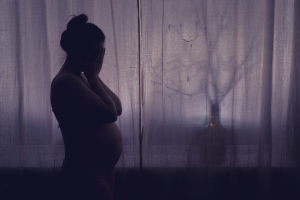A victory for religious freedom in Virginia

At the heart of many culture war issues is the question of whether religious organizations and individuals have the right to order their lives around their deeply held beliefs. While most Americans grant that we all have a right to believe what we do, the First Amendment guarantees the “free exercise” of religion. It’s essential to understand what exactly that entails.
Over the last 15 years, the constitutional guarantee of free exercise has been tested again and again, mostly by a new set of so-called “rights” associated with abortion, homosexuality and transgenderism that have been written into state and federal law.
As a result, a group of nuns have been forced to go to court so they would not have to provide insurance coverage for birth control. Pro-life pregnancy care centers have been forced to argue that they should not be forced to advertise abortion “services.”
Religious organizations, ministries and student groups have been forced repeatedly to defend why they shouldn’t be required to hire people who do not hold their beliefs. When taken together, there has been a concerted push to make progressive views on sex and gender mandatory for everyone. If successful, this would effectively abolish America’s “first freedom,” which the American founders intended.
Recently, one such conflict in Virginia was settled the right way. Recently, a group of churches, Christian schools and the Care Net pregnancy center network reached a settlement with Virginia’s attorney general that affirmed the state cannot force them to hire people who oppose their beliefs. Also, these groups will not be required to pay for insurance plans for their employees that cover gender reassignment surgery or cross-sex hormone therapy.
The case was filed back in 2020 and concerned a Virginia LGBTQ anti-discrimination statute called the Virginia Values Act, enacted by former governor Ralph Northam. The law was supposed to create, in Governor Northam’s words, “an inclusive Commonwealth where there is opportunity for everyone, and everyone is treated fairly.” In practice, however, the law was anything but inclusive, threatening organizations that didn’t comply with strict DEI rules with fines of up to $100,000 per violation. In effect, as Alliance Defending Freedom — who represented the plaintiffs in this case — explained, this law would have “forced nonprofit ministries to abandon their core convictions in hiring and other policies.”
Thanks to the initiative of these churches, schools, Care Net, and the outstanding work of ADF, this decision went the right way. However, given the Supreme Court’s consistent stand on religious organizations and institutions, the fact that another state attempted to control hiring practices of these faith-based groups shows how precarious religious freedom is when it is misunderstood.
The ability of nonprofit organizations to hire people who share their beliefs and mission is equivalent to their right to exist. If laws like this one in Virginia are not challenged, Christians and members of other religions will be, in effect, forced to affirm wrong ideas about diversity, equity, and inclusion dogma in order to take part in society.
Even further upstream from these bad laws is a bad idea identified by Chuck Colson many years ago from then-Secretary of State Hillary Clinton, who repeatedly used the phrase “freedom of worship.” As Chuck pointed out then, being free to worship only acknowledges the right to believe in one’s heart, home, or house of worship. This is a very different thing from what the American founders intended by the “free exercise” of religion. And yet, more elected officials have, either in word or deed, embraced this impoverished concept in the years since. This is the most important threat to First Amendment rights.
Faith is deeply personal, but it’s not private. The idea that organizations like pregnancy care centers or Christian schools should not be allowed to operate or hire according to their beliefs is dangerous and deeply un-American. As long as there are laws on the books and policies in place that try to force religious Americans to leave their consciences at home or in church, we should defend our first freedom. The world, and our nation, are better with it than without it.
I’m thankful for the work of Alliance Defending Freedom, First Liberty, and others who courageously stand for religious liberty. At the same time, I’m praying for a day when their work is not nearly as necessary as it is today.
Originally published at BreakPoint.
John Stonestreet serves as president of the Colson Center for Christian Worldview. He’s a sought-after author and speaker on areas of faith and culture, theology, worldview, education and apologetics.
Shane Morris is a senior writer at the Colson Center, where he has been the resident Calvinist and millennial, home-school grad since 2010, and an intern under Chuck Colson. He writes BreakPoint commentaries and columns. Shane has also written for The Federalist, The Christian Post, and Summit Ministries, and he blogs regularly for Patheos Evangelical as Troubler of Israel.



























